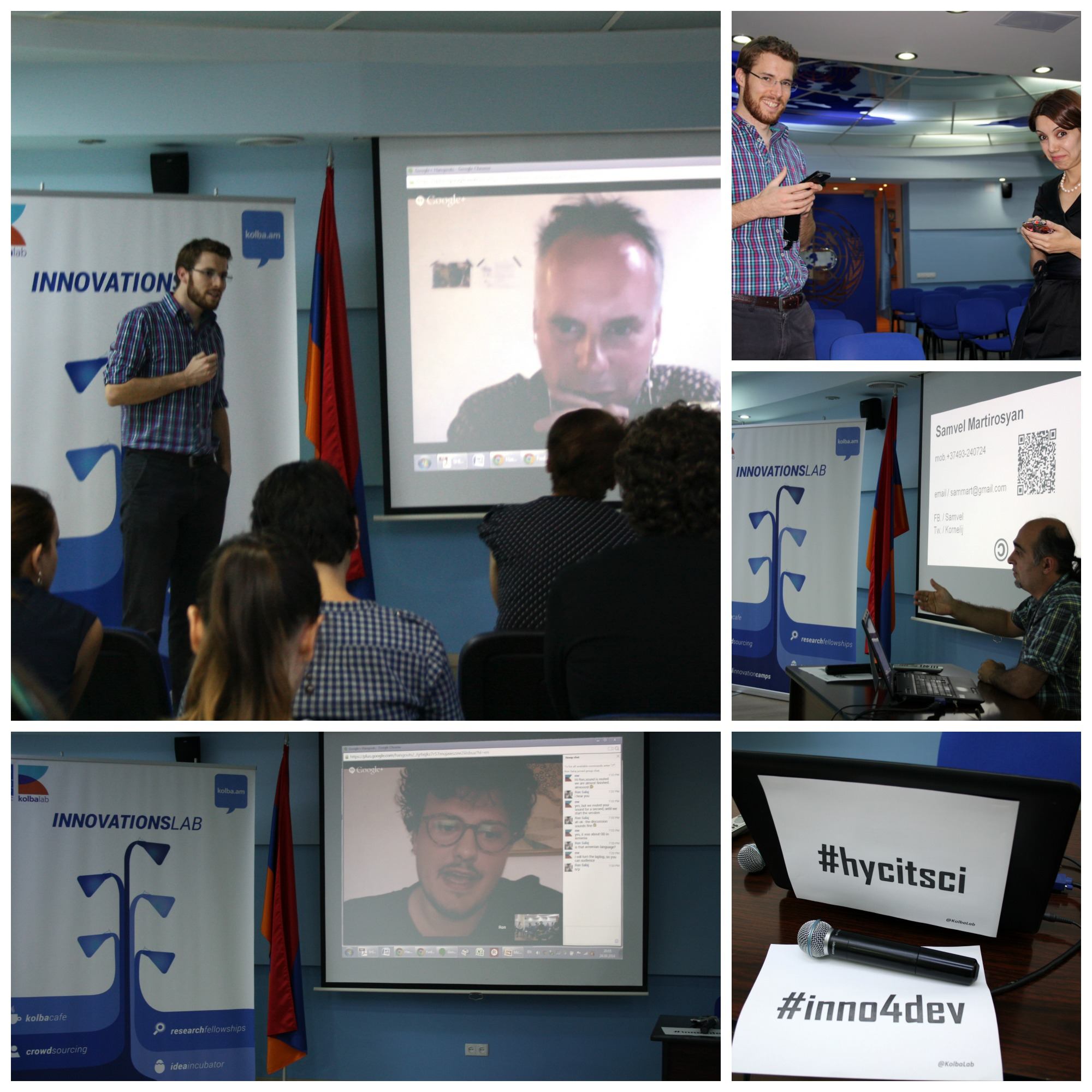
As part of the Shift Week of Innovation Action, UNDP Armenia brought together activists, data geeks, hackers and civil servants for a networking event on open data and citizen science. The event, called Open Data Talks, involved presentations from Frank Kresin, Research Director at the Waag Society, Samvel Martirosyan, Dean of Yerevan Branch of the Awesome Foundation, and Ron Salaj, Digital Lead at UNICEF’s Innovations Lab in Kosovo.
The participants discussed open data and citizen science both within Armenia and beyond. First presenter, Frank Kresin who is Research Director at Waag Society presented the Smart Citizen Kit, as an example of citizen-led data collection on urban environmental issues. Smart Citizen Kit is an open-source environmental monitoring platform. The project is based on geolocation, Internet and free hardware and software for data collection and sharing. Users could contribute information on air pollution, noise, temperature and humidity and to compare with other cities. Contrasted this with the smart cities approach, which, according to Frank, does not sufficiently encourage self-organisation.
Samvel Martirosyan brought the conversation closer to home by highlighting the existing open datasets available in Armenia. Samvel highlighted that open data available in Armenian web space was used by journalists for their investigative articles and it’s not sufficiently mainstreamed into civic monitoring or watch-dogging. Presenting numerous numbers of platforms that make the data open and available, Martirosyan mentioned, that the main issue was not about the data being open, but about people who didn’t know how to use that open data.
The same idea about people’s perception of open data and its usability was delivered by the next speaker, Ron Salaj, Digital Head of UNICEF Innovations Lab in Kosovo, who discussed his work fostering citizen science in Kosovo. “Having a hacker mindset is the key element to implementing citizen science. For me, it’s about human intervention and 10% about technology and data” – said Salaj on citizen science project.
Along with presenting open data situation globally and in Armenia, the speakers and the audience agreed that open data could be quite sensitive in terms of making private data available for wide public. However, as many open data platforms present information generated through crowdsourcing, there is a need for data verification. Thus, summing up the event the guests agreed that there is a need for organizing discussion on how open data could be applied in media, in the activities of civil society organizations and development agencies, as well as how it could be useful for active citizens and online users. So we hope it will become a series of networking events on open data and citizen science.
Follow #HyCitSci for updates.